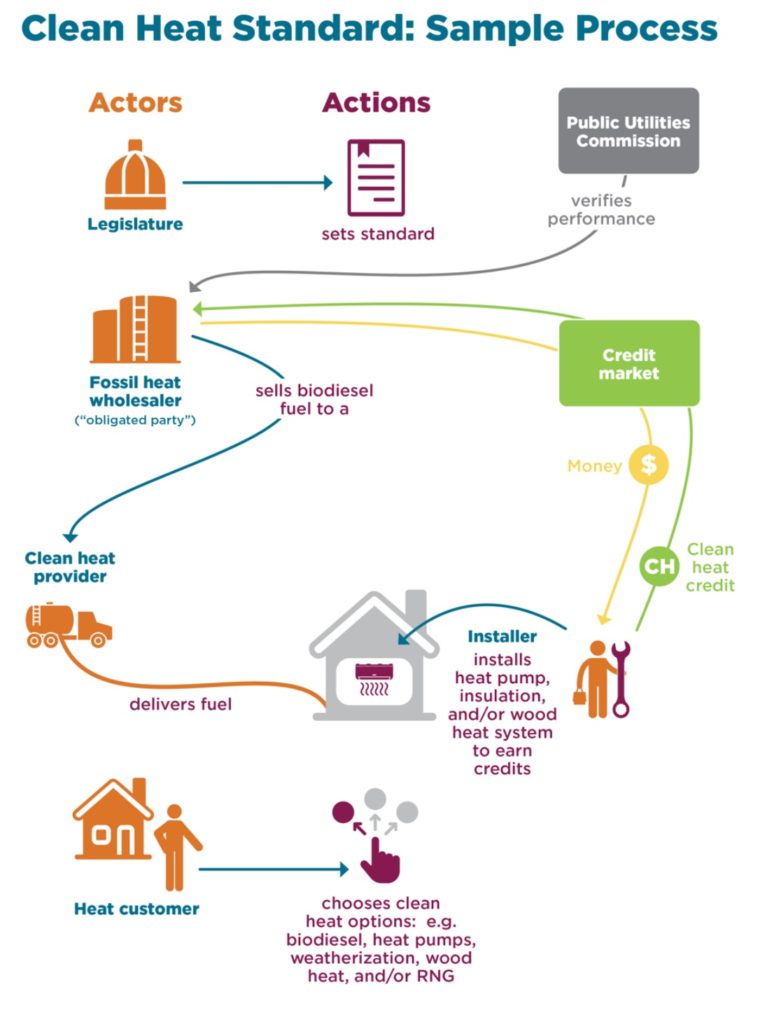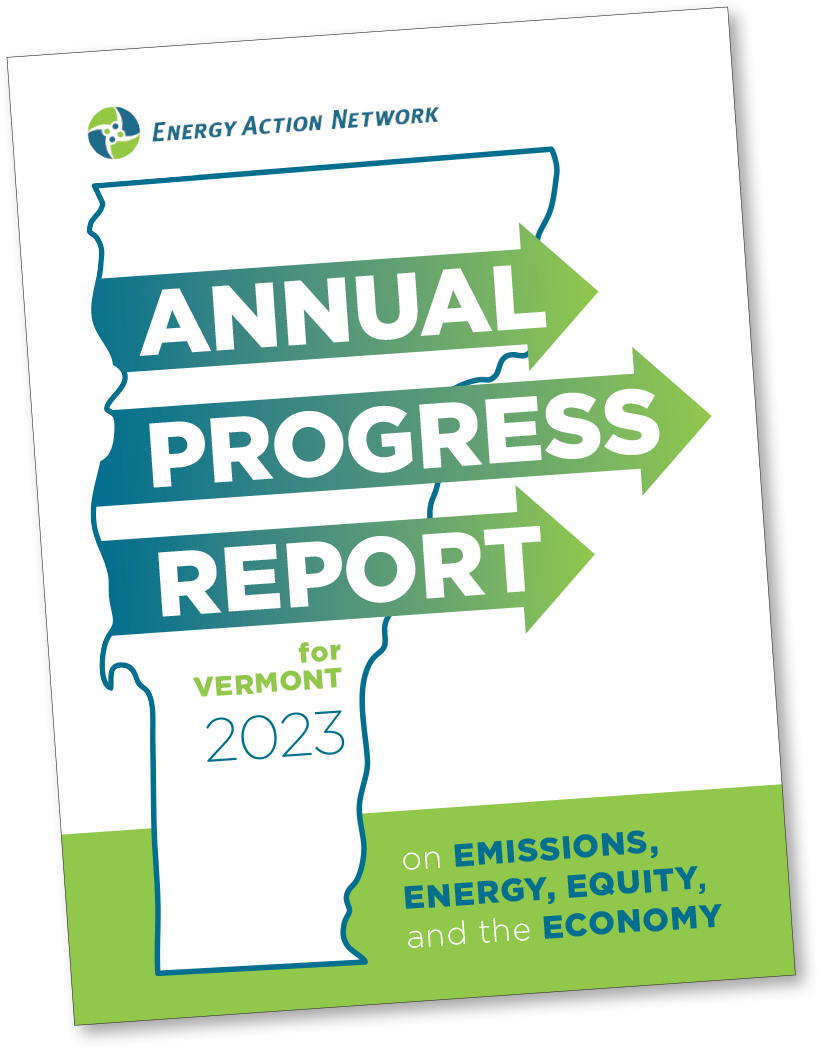Resources:
2023 Affordable Heat Act (S5)
- Affordable Heat Act S.5 – link to VT legislative website
- Affordable Heat Act Materials from Clean Heat Working Group
- Overview – coming soon
- FAQ
Working Group Resources
2022 Clean Heat Standard Bill information
- Clean Heat Standard Legal Assessment Memo
- Resources and links to former testimony in the VT House Energy & Technology Committee
- Bill passed out of VT House Energy & Technology Committee
- Commentaries written by EAN Members and Legislators
Overview: A Clean Heat Standard would require fossil fuel corporations and utilities that sell heating fuels in Vermont to reduce their climate pollution over time, in line with Global Warming Solutions Act requirements. Fossil fuel suppliers will be able to meet the performance standard either by selling cleaner heating fuels or by paying for work done by others that helps Vermonters use clean heating options (such as weatherization, heat pumps, or advanced wood heat). The goal of the Clean Heat Standard is to both reduce climate pollution and reduce costs of home and building heating over time.
For years, Vermont has required our electric utilities to help their customers save energy and reduce fossil fuel use. The Clean Heat Standard would establish a similar standard for fossil fuel corporations. For Vermont households and businesses, this would create an array of cleaner heating options from which to choose. The CHS would make many clean heating options more affordable for Vermonters, helping Vermont homes and businesses move from dependence on polluting fossil fuels that are high-cost and price-volatile, like propane and fuel oil, to lower-cost, more price-stable options like heat pumps, heat pump water heaters, and efficient wood heat, depending on what is best for their individual circumstances.
To ensure climate pollution is actually reduced and not simply moved elsewhere, fuels would be assessed on a lifecycle emissions basis, preventing unsustainable biofuels from earning credits.
Progress to date: Design of a Clean Heat Standard began after the idea was selected as a winning pitch at the 2020 EAN Network Summit. Led by Rich Cowart and Chris Neme, a dedicated group of EAN Members and Public Partners met, often weekly, to discuss and develop key concepts. A webinar (slides and video linked below) describing the Clean Heat Standard was hosted on October 22, 2021, and a white paper was drafted. Several members of this Network Action Team were called to testify before the House Energy & Technology committee of the Vermont legislature. A bill was passed out of this committee by a 7-2 margin, passed through the House Appropriations Committee, and passed the full House on March 16th on a 96 to 44 vote. It then crossed over to the Senate, where it passed through the Senate Natural Resources & Energy Committee by a 4-1 vote. It was voted on by the whole Senate in late April, passing by a vote of 23-7 with several readings and an amendment regarding a check-back through the legislature. This amendment was approved into the bill by the House of Representatives on May 3rd by a vote of 88-37 and sent to the Governor’s desk. The Governor vetoed the bill on May 6th, which the House of Representatives failed to override on May 10th by a vote of 99-51. To see more details of this timeline on the legislature’s website, see here.
Resources
- Video from Climate Solutions Caucus Update January 19, 2022
- Clean Heat Standard Testimony (YouTube links):
- Video from October 22, 2021 Webinar
- Slides from the October 22, 2021 Webinar
[pdf-embedder url=”https://eanvt.org/wp-content/uploads/2021/10/Clean-Heat-Standard-Webinar-Oct-2021-v1b-1.pdf” title=”Clean Heat Standard – Webinar Oct 2021 v1b (1)”]
If you are interested in learning more or getting involved in this project, please contact Cara Robechek cara@eanvt.org.
Note: Network Action Team projects were selected by the Network membership through a competitive process at the EAN annual summit. Although Network members may support specific policy actions as part of their work on these Action Teams, EAN staff serve in the role of neutral convener and refrain from advocating for specific policies.


